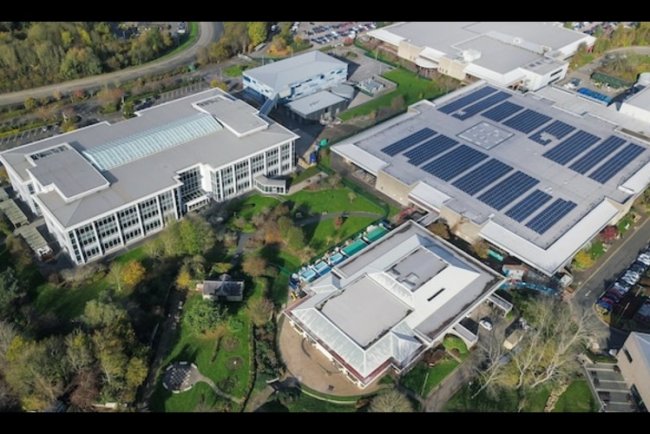Watershed And Stanford Launch Cornerstone Initiative
Watershed and Stanford partner to unify top carbon models, boosting Scope 3 accuracy and global sustainability efforts

Watershed, a top climate solutions provider, has launched the Cornerstone initiative in partnership with Stanford University's Stanford Sustainable Solutions Lab, a division of the Stanford Doerr School of Sustainability. This program aims to protect and expand open access to two critical datasets used to measure corporate value chain emissions, especially Scope 3 emissions, which often represent the largest part of a company's carbon footprint.
The initiative will serve as the open-access hub for the US Environmentally-Extended Input-Output model (USEEIO), developed by the US Environmental Protection Agency (EPA), and the Comprehensive Environmental Data Archive (CEDA), created by VitalMetrics and acquired by Watershed in 2023. Together, these models support about 65 percent of global Scope 3 carbon measurements, according to CDP data, making them crucial for corporate carbon accounting worldwide.
In the coming months, USEEIO and CEDA will be combined into a single global open multi-regional input-output model, managed under the Cornerstone initiative. This unified model is expected to provide more accurate Scope 3 measurements and improve assessments of environmental impact. It will not only address greenhouse gas emissions but will also allow for evaluations of regional air and water quality, water use, and waste production, giving companies and policymakers a broader understanding of environmental impacts across value chains.
The Stanford Sustainable Solutions Lab, directed by sustainability expert Dr. Steve Davis, will oversee research that applies the integrated model to tackle urgent challenges in energy and food systems. This research will ensure the model continues to improve for real-world applications in corporate sustainability and policy development. The collaboration aims to refine technical methods and broaden access to essential environmental datasets at a time when transparency and open science are increasingly crucial for advancing climate action.
Cornerstone’s leadership team includes key figures in environmental data modeling. Dr. Wesley Ingwersen, the former EPA lead and developer of USEEIO, will be the Technical Director. Dr. Sangwon Suh, Head of Science at Watershed and the original developer of CEDA, will share his scientific knowledge, while Dr. Davis will act as a Technical Advisor. Ingwersen’s appointment is especially noteworthy, as he was let go from the EPA in July after publicly opposing the agency’s new policy direction. His experience and leadership are expected to be significant in shaping Cornerstone’s strategy and maintaining its commitment to scientific integrity and open access.
The Cornerstone initiative goes beyond technical integration by fostering a global community of researchers, corporate sustainability teams, and policymakers. It plans to provide education and resources to help organizations effectively use Environmentally Extended Input-Output (EEIO) data, which links economic activities to environmental impacts across complex value chains. This educational effort is expected to empower more organizations to conduct thorough sustainability assessments, meet disclosure requirements, and make informed decisions about emissions reductions.
Christian Anderson, co-founder of Watershed, emphasized the importance of keeping these datasets publicly accessible. “By combining the most trusted environmental data models and keeping them open to the world, we hope to help companies and organizations build and maintain momentum on sustainability,” he said. His comments reflect a growing understanding that collaboration, transparency, and shared resources are essential for achieving meaningful progress on climate goals.
The merger of USEEIO and CEDA into a single, unified platform is expected to enhance the comparability and consistency of Scope 3 reporting across industries. Companies currently face significant challenges in measuring and verifying Scope 3 emissions, which include indirect emissions from suppliers, logistics, product use, and other value chain activities. By developing a standardized, globally relevant model, Cornerstone aims to eliminate technical barriers and provide more accurate, comparable, and actionable emissions data.
Watershed’s investment in Cornerstone highlights a broader trend in climate solutions toward open-access infrastructure that supports both corporate accountability and policy innovation. As regulators, investors, and consumers increasingly demand strong and transparent environmental reporting, initiatives like Cornerstone could significantly influence the future of climate disclosure standards and corporate sustainability strategies.
In addition to improving data accuracy and accessibility, Cornerstone will act as a collaborative platform where researchers and practitioners can exchange ideas, develop new methods, and test interventions aimed at reducing environmental impacts. This approach aligns with the overall mission of the Stanford Sustainable Solutions Lab to identify and scale solutions to global sustainability challenges through interdisciplinary research and industry engagement.
With global climate goals requiring quick, coordinated action, accurately measuring and managing Scope 3 emissions has become essential for both the private and public sectors. By combining two of the most influential environmental data models under one open-access framework, Watershed and Stanford aim to set a cornerstone—both in name and function—for the next generation of corporate sustainability measurement and environmental impact analysis.
What's Your Reaction?

















